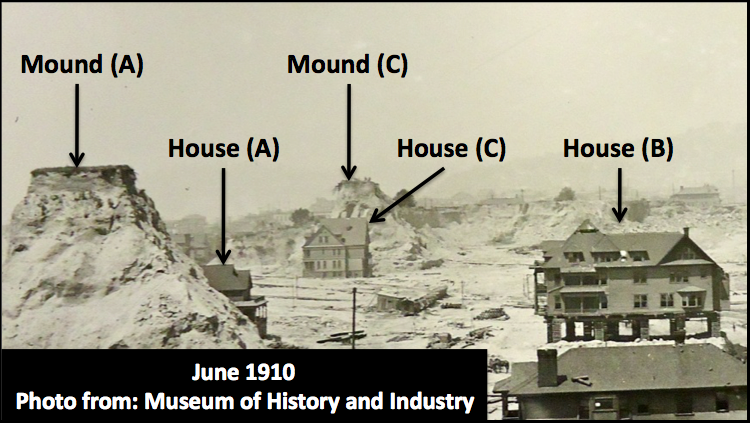
noun
- a degree or step in a scale, as of rank, advancement, quality, value, or intensity: the best grade of paper.
- a class of persons or things of the same relative rank, quality, etc.
- a step or stage in a course or process.
- a single division of a school classified according to the age or progress of the pupils. In the U.S., public schools are commonly divided into twelve grades below college.
- the pupils in such a division.
- grades, elementary school (usually preceded by the): He first began teaching in the grades.
- a letter, number, or other symbol indicating the relative quality of a student’s work in a course, examination, or special assignment; mark.
- a classification or standard of food based on quality, size, etc.: grade A milk.
- inclination with the horizontal of a road, railroad, etc., usually expressed by stating the vertical rise or fall as a percentage of the horizontal distance; slope.
- Building Trades. Also called grade line. the level at which the ground intersects the foundation of a building.
- an animal resulting from a cross between a parent of ordinary stock and one of a pure breed.
- Mathematics. grad2.
verb (used with object), grad·ed, grad·ing.
- to arrange in a series of grades; class; sort: a machine that grades two thousand eggs per hour.
- to determine the grade of.
- to assign a grade to (a student’s work); mark: I graded forty tests last night.
- to cause to pass by degrees, as from one color or shade to another.
- to reduce to a level or to practicable degrees of inclination: to grade a road.
- to cross (an ordinary or low-grade animal) with an animal of a pure or superior breed.
verb (used without object), grad·ed, grad·ing.
- to incline; slant or slope: The road grades steeply for a mile.
- to be of a particular grade or quality.
- to pass by degrees from one color or shade to another; blend: See how the various colors grade into one another.
Verb Phrases
- grade up, to improve (a herd, flock, etc.) by breeding with purebreds.
- at grade,
- on the same level: A railroad crosses a highway at grade.
- (of a stream bed) so adjusted to conditions of slope and the volume and speed of water that no gain or loss of sediment takes place.
- make the grade, to attain a specific goal; succeed: He’ll never make the grade in medical school.
- up to grade, of the desired or required quality: This shipment is not up to grade.
noun
- a position or degree in a scale, as of quality, rank, size, or progressionsmall-grade eggs; high-grade timber
- a group of people or things of the same category
- mainly US a military or other rank
- a stage in a course of progression
- a mark or rating indicating achievement or the worth of work done, as at school
- US and Canadian a unit of pupils of similar age or ability taught together at school
- US and Canadian
- a part of a railway, road, etc, that slopes upwards or downwards; inclination
- Also called: gradienta measure of such a slope, esp the ratio of the vertical distance between two points on the slope to the horizontal distance between them
- a unit of angle equal to one hundredth of a right angle or 0.9 degree
- stockbreeding
- an animal with one purebred parent and one of unknown or unimproved breeding
- (as modifier)a grade sheep Compare crossbred (def. 2), purebred (def. 2)
- linguistics one of the forms of the vowel in a morpheme when this vowel varies because of gradation
- at grade
- on the same level
- (of a river profile or land surface) at an equilibrium level and slope, because there is a balance between erosion and deposition
- make the grade informal
- to reach the required standard
- to succeed
verb
- (tr) to arrange according to quality, rank, etc
- (tr) to determine the grade of or assign a grade to
- (intr) to achieve or deserve a grade or rank
- to change or blend (something) gradually; merge
- (tr) to level (ground, a road, etc) to a suitable gradient
- (tr) stockbreeding to cross (one animal) with another to produce a grade animal
1650s, “to arrange in grades,” from grade (n.). Related: Graded; grading.
1510s, “degree of measurement,” from French grade “grade, degree” (16c.), from Latin gradus “step, pace, gait, walk;” figuratively “a step, stage, degree,” related to gradi “to walk, step, go,” from PIE *ghredh- (cf. Lithuanian gridiju “to go, wander,” Old Church Slavonic gredo “to come,” Old Irish in-greinn “he pursues,” and second element in congress, progress, etc.).
Replaced Middle English gree “step, degree in a series,” from Old French grei “step,” from Latin gradus. Railway sense is from 1811. Meaning “class of things having the same quality or value” is from 1807; meaning “division of a school curriculum equivalent to one year” is from 1835; that of “letter-mark indicating assessment of a student’s work” is from 1886 (earlier used of numerical grades). Grade A “top quality, fit for human consumption” (originally of milk) is from a U.S. system instituted in 1912.
- The degree of inclination of a slope, road, or other surface.
- A grouping of organisms done purely on the basis of shared features and without regard to evolutionary relationships. Grades may include organisms that do not share a common ancestor, or may exclude some organisms having the same common ancestor as the other organisms in the grade. For this reason, many taxonomists do not accept grades as formal classifications. The class Reptilia (reptiles) is a grade since it includes dinosaurs but not birds, even though birds are descended from dinosaurs. Compare clade.
see make the grade.
 Liberal Dictionary English Dictionary
Liberal Dictionary English Dictionary